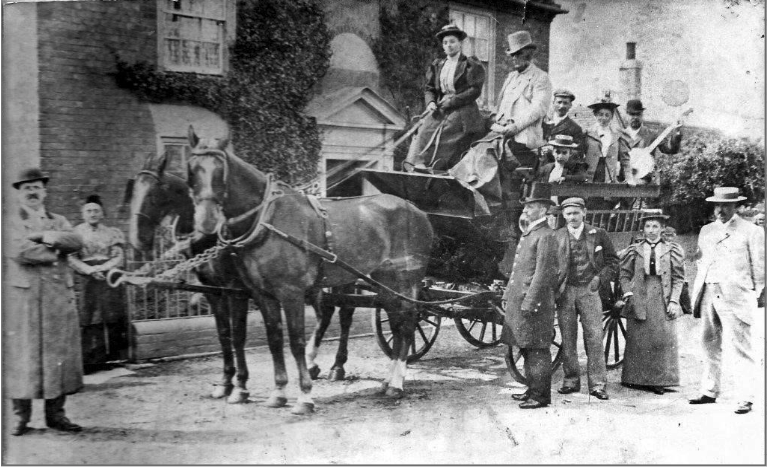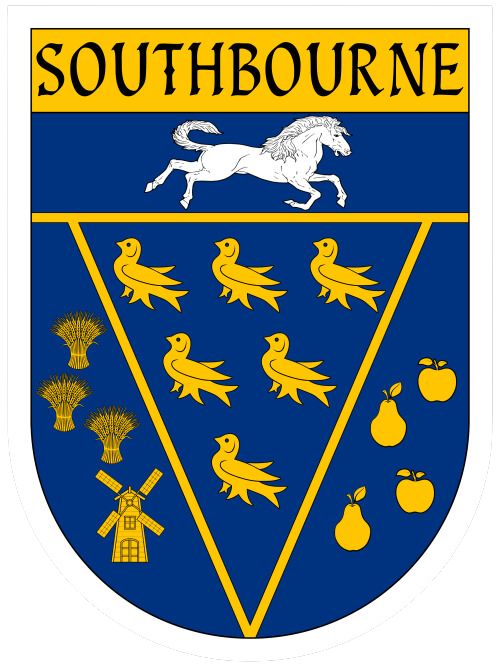Breweries
The Sussex Brewery
Every year the family rented a carriage to drive to Goodwood Races in July. This shows them outside the Sussex Brewery and was taken in about 1890. Emily Miller is standing at the gate, Bessie Hannington Miller is the driver and Abraham William is sitting next to her. Standing behind the groom is Albert Willie Miller and his sister Laura Jane is standing next to him. Presumably the others in the photo are friends or family.
It was very popular at this time for private houses to brew their own beer and drink it in preference to the water, which was not particularly safe or pleasant to drink.
The beer was given to friends and if the brew was good, many houses started to sell it to the public.
Customers would bring their own containers to the house to collect the beer and this was the start of the ‘Bottle and Jug’ trade - a practice that lasted until the 1950’s.

Beer licensing was instigated in the 1700’s, not only to ensure that the quality was good, but also to ensure that the landlord didn’t serve a short measure. When the Sussex Brewery, (as it was to eventually be called) was closed in 1973 it was the next to last pub in Sussex to have a ’beer only’ license. This meant that the pub was not allowed to sell spirits or fortified wines of any kind.
Edward Wyndham, or Wyndham as he was known to everyone ran the pub for years and he did build quite a reputation for his Worthington E Bitter, which he served direct from the wooden barrel. Food in pubs was not popular at this time so only crisps and biscuit bars such a Taxis and Wagon Wheels were sold.
Unfortunately, over the years, the place fell into disrepair and the Health Authorities suggested that Wyndham should give up and retire. He reluctantly agreed and it was then that Sea View cottage on the back of the pub was renovated, so that he could move in and enjoy the rest of his days in relative comfort, until he died in 1976.
The pub had no central heating and no running hot water - the place was as cold as charity and no place for an elderly man to live out his last days. Having been in the family for nearly 240 years without a break, the pub was sold to Ray Drewitt and Dave Underwood who carried on the brewing tradition by briefly setting up a micro brewery making about 400gals a week until they subsequently sold it.
This article is by kind permission of Tony and June White (nee Miller)

